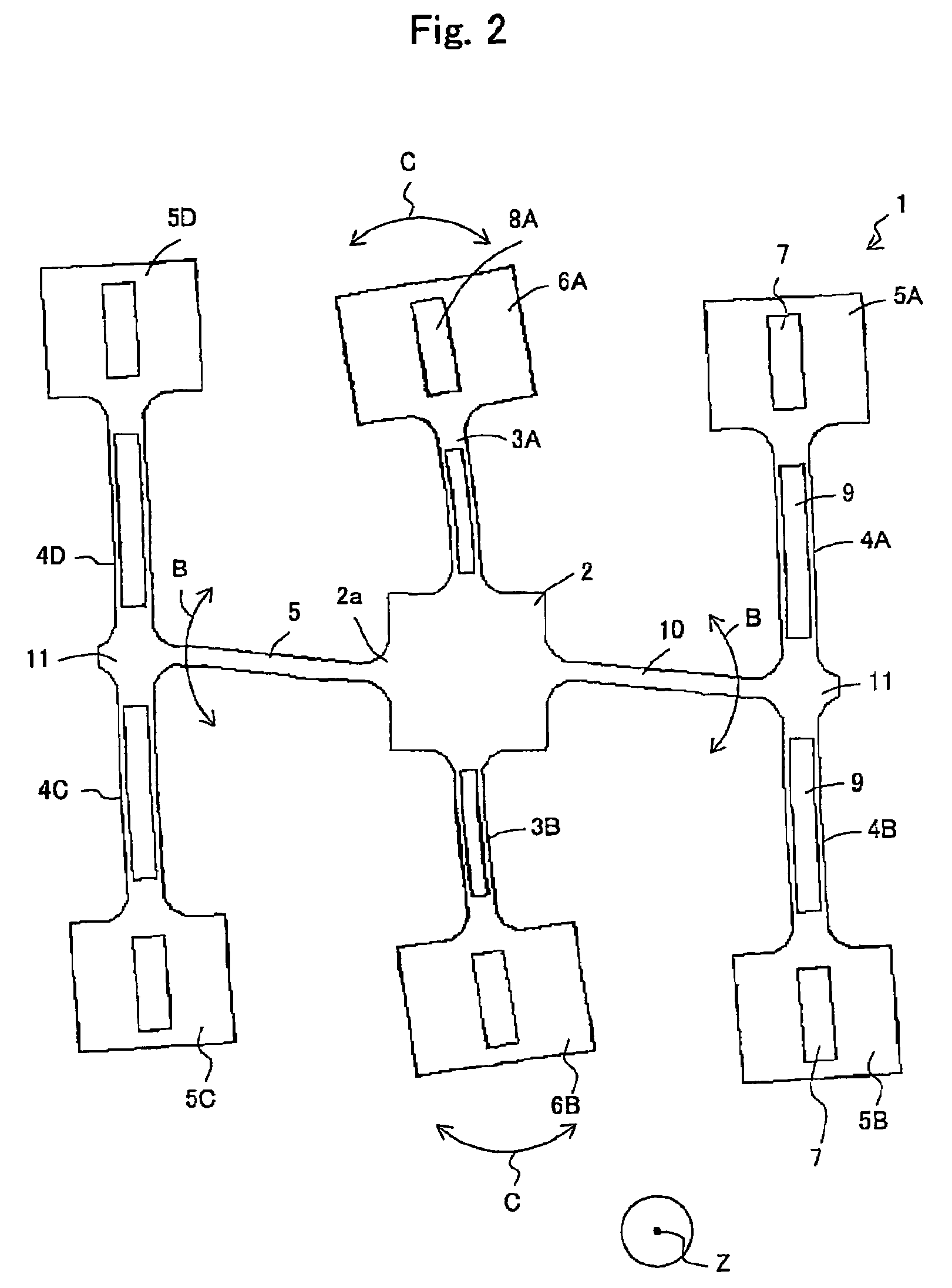Structures for supporting vibrators and devices for measuring physical quantities
a technology for vibrators and structures, applied in the direction of turn-sensitive devices, instruments, device material selection, etc., can solve problems such as substantial temperature drift, and achieve the effect of reducing zero-point temperature dri
- Summary
- Abstract
- Description
- Claims
- Application Information
AI Technical Summary
Benefits of technology
Problems solved by technology
Method used
Image
Examples
example 1
[0096]The vibrator 1 was supported on the substrate according to the same procedure as the comparative example 1, except that the supporting structure shown in FIG. 17 was applied. The numerical values of “fd” and “fw” were shown in table 1. As a result, the dependency of the zero point gyroscope signal component on temperature was shown in FIG. 4. That is, the zero point gyroscope signal component was gradually lowered substantially according to a linear function between minus 40 to plus 85° C. and a particular zero point temperature drift was not observed.
example 2
[0097]The vibrator 1 was supported on the substrate according to the same procedure as the comparative example 1, except that the supporting structure shown in FIG. 15 was applied The numerical values of “fd” and “fw” were shown in table 1. As a result, a peak of zero point temperature drift was detected in a range of minus 40 to 0° C., as shown in FIG. 22. The temperature drift was considered to be due to resonance of vibration of “2fd”. Further, according to the Example 2, the amount of drift was considerably reduced compared with that of the comparative example, and the detuning frequency was changed substantially according to a linear function with respect to temperature in a range of minus 40 to plus 85° C., as shown in FIG. 20.
example 3
[0098]The vibrator 1 was supported on the substrate according to the same procedure as the comparative example 1, except that the supporting structure shown in FIG. 5 was applied. As a result, a peak of zero point temperature drift was detected as shown in FIG. 23 in a range of 0° C. to 30° C. The temperature drift is considered to be due to resonance of “3fd”. Further, according to the Example 3, the amount of d was considerably reduced compared with that of the comparative example, and the detuning frequency was gradually changed according to a linear function with respect to temperature in a range of minus 40 to plus 85° C., as shown in FIG. 21.
PUM
 Login to View More
Login to View More Abstract
Description
Claims
Application Information
 Login to View More
Login to View More - R&D
- Intellectual Property
- Life Sciences
- Materials
- Tech Scout
- Unparalleled Data Quality
- Higher Quality Content
- 60% Fewer Hallucinations
Browse by: Latest US Patents, China's latest patents, Technical Efficacy Thesaurus, Application Domain, Technology Topic, Popular Technical Reports.
© 2025 PatSnap. All rights reserved.Legal|Privacy policy|Modern Slavery Act Transparency Statement|Sitemap|About US| Contact US: help@patsnap.com



